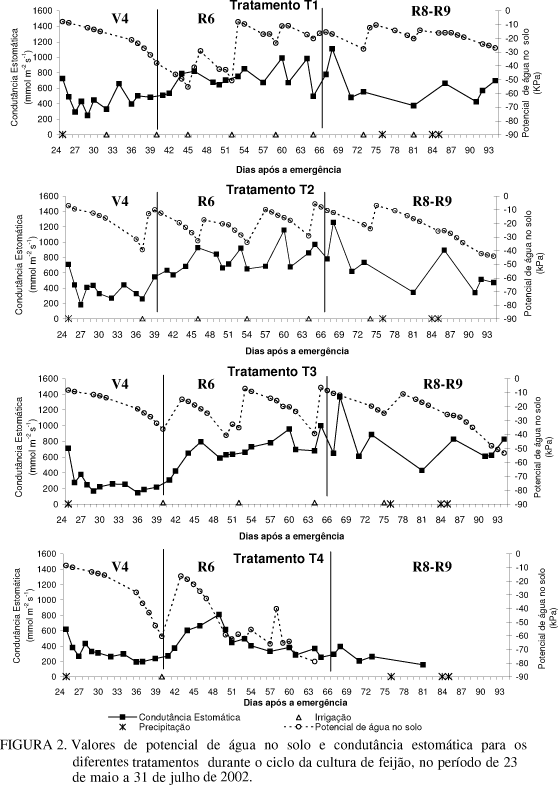Stomatal control is an important physiological process for plants to reduce water loss. It causes reduction in stomatal conductance and generally in gas exchanges, as a response of several factors including water stress. The objective of this study was to determine the stomatal conductance of bean leaves submitted to different irrigation regimes. Field experiment was conducted at the São Paulo State University, in Jaboticabal, Brazil. Irrigation of the treatments occurred when available water capacity in the soil decreased to 40; 60 and 80% (respectively, treatments T1, T2 and T3), while irrigation in T4 occurred only to assure seedling emergence. Direct measurements of stomatal conductance were taken every day under field conditions in both adaxial and abaxial leaf surfaces using porometer. In all treatments, several measurements showed reduced stomatal conductance in response to low values of matric potential and high values of vapor pressure deficit (DPV) and vice-versa. The lowest values of stomatal conductance of T4 leaves, taken from plants under the most restrictive water supply regime tested in this study, were observed during the period of plant flowering and grain development.
water stress; soil water; Phaseolus vulgaris L.







